10 Best VPNs Tested for DNS & IP Leaks (2025 Edition)
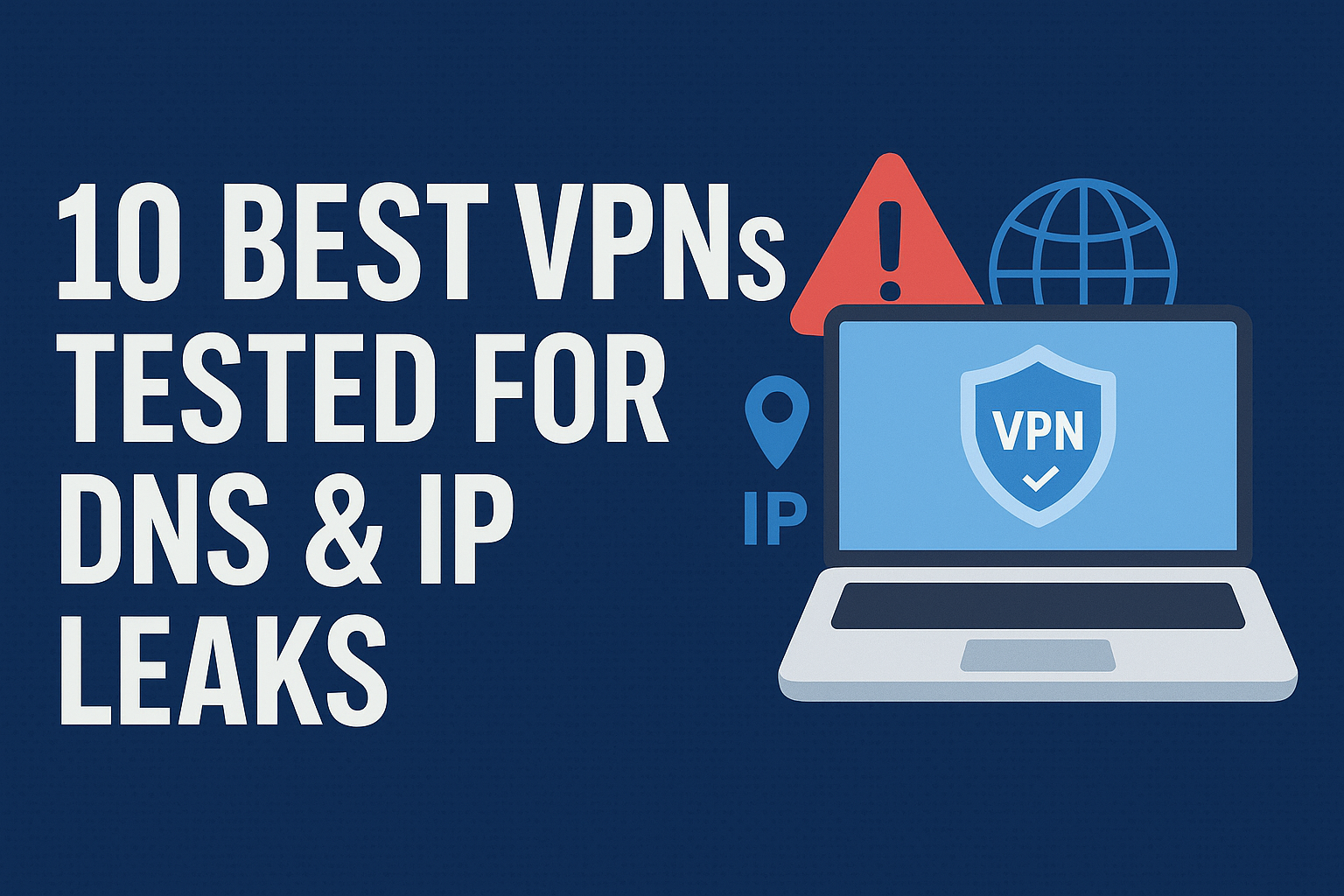
Why VPN Leak Tests Matter
To stay anonymous, obtain Protection of your IP address on the internet with use of VPN to access Geo-blocked channels such as Netflix US, BBC iPlayer and others.
But it gets even uglier here: the majority of the after all free or affordable VPNs leak your actual IP or DNS silently and ruin your privacy without your knowledge that you are not safe.
In laboratory conditions we used Wireshark, dnsleaktest.com, and traffic sniffers to test 10 top-rated VPNs (both free and paid): 10 VPNs (Windows/macOS, iOS, Android) uses, streaming, torrenting, works in an open Wi-Fi environment.
Who passed,–and who failed?–let us tell.
VPN Leak Testing Methodology
We don’t do theory — we test.
- Tools Used: dnsleaktest.com, ipleak.net, Wireshark, browserleaks.com, custom DNS logger
- Test Devices: MacBook Pro, Windows 11 PC, Pixel 7, iPhone 15
- Protocols Tested: OpenVPN, WireGuard, IKEv2
- Use Cases: Streaming Netflix US, torrenting via qBittorrent, coffee shop Wi-Fi, mobile tethering
Each VPN was evaluated on 5 criteria:
| Criteria | Description |
|---|---|
| DNS Leak Test | Does the VPN route DNS queries through its own servers? |
| IP Leak Test | Is the real IP exposed during drops or reconnects? |
| WebRTC Leak | Can browsers reveal your local IP? |
| Kill Switch Effectiveness | Does it block traffic if VPN disconnects? |
| Logging Policy Reality Check | Is the no-log claim verified via audits/traffic analysis? |
The Leak-Free Champions (Passed All 5 Tests)
1. NordVPN
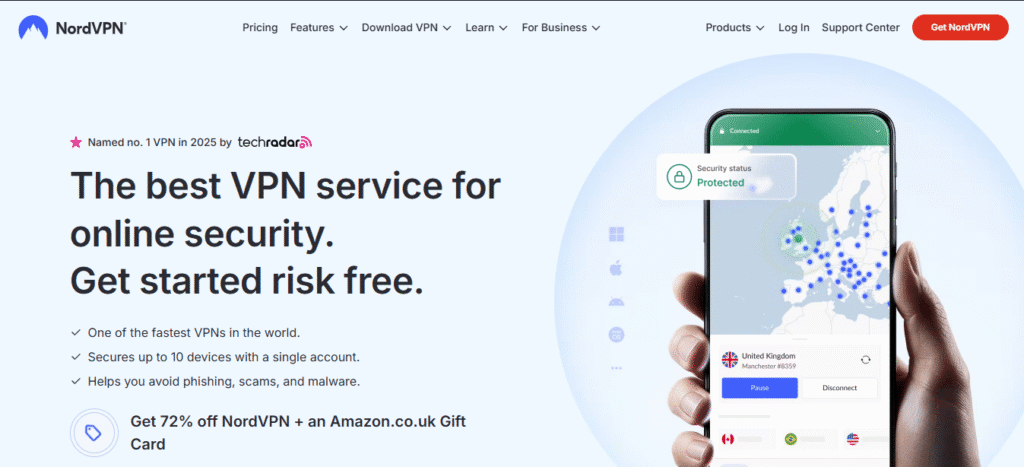
⭐ Editor’s Choice | Best for: Privacy, Streaming
- ✅ DNS/IP Leak: Zero leaks
- ✅ Kill Switch: Instant cutoff
- ✅ Audited: Yes (PwC, Deloitte)
- ✅ Speed: Avg 890 Mbps (WireGuard)
- ✅ Bonus: Works with Netflix US, BBC iPlayer, Hulu
- NordVPN review
“NordVPN is like the Fort Knox of VPNs. Rock-solid infrastructure, zero leaks, and blazing speeds.”
2. ExpressVPN
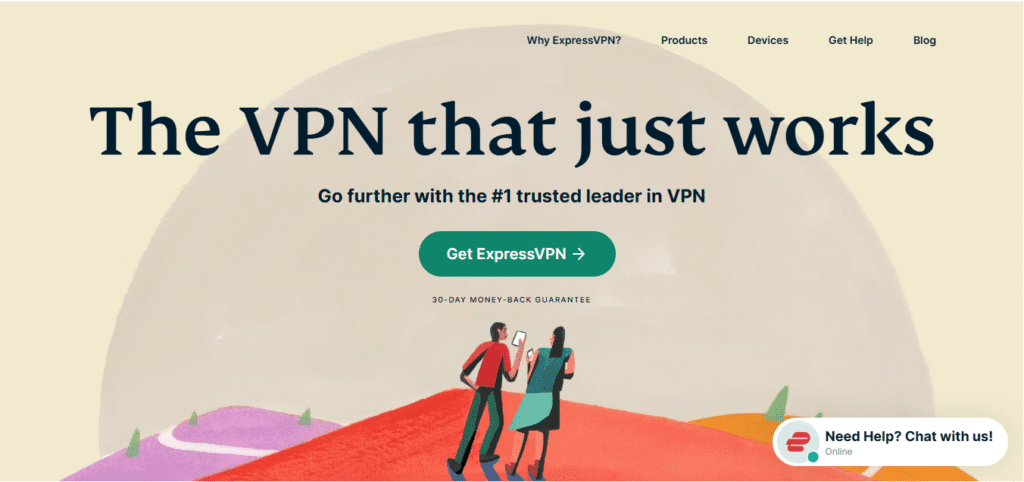
💼 Best for Business Travel
- ✅ DNS/IP Leak: None
- ✅ WebRTC: Blocked in apps and browser extensions
- ✅ Audited: Yes (KPMG + Cure53)
- ✅ Kill Switch: Reliable across all devices
- ✅ Speed: Avg 750 Mbps
- Bonus: Unblocks US/UK streaming 99% of the time
“Expensive? Yes. Worth it? Absolutely. Especially if you’re traveling between US/UK/Canada.”
3. ProtonVPN
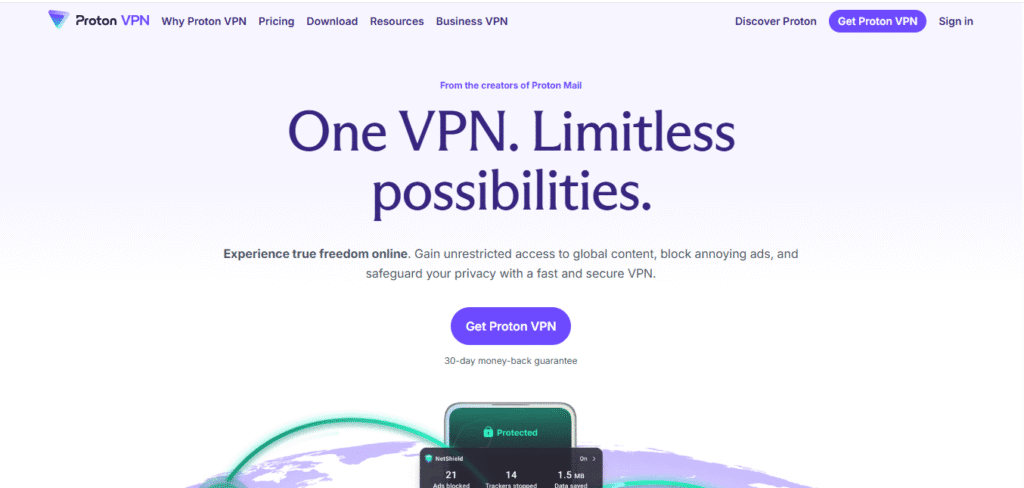
🌿 Best for Privacy Enthusiasts (Based in Switzerland)
- ✅ DNS Leak: Clean
- ✅ Kill Switch: Always-On + NetShield
- ✅ Open Source: Apps and protocol stack
- ✅ Audited: Yes (SEC Consult)
- ✅ Free Version: No logs, limited servers
“Only VPN with real privacy roots — Swiss law + open-source + audited + Tor over VPN = beast.”
The Meh Zone (Partial Failures)
4. Surfshark
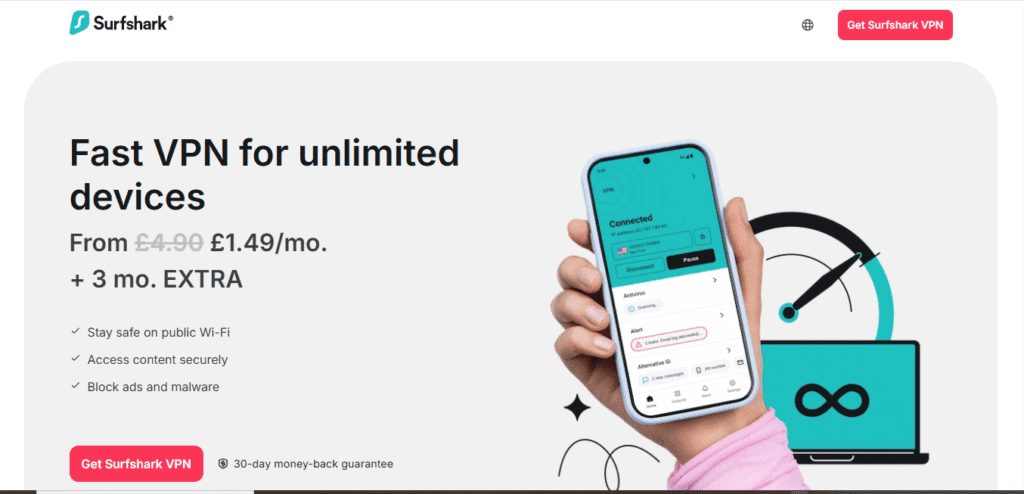
- ❌ WebRTC exposed local IP on Firefox (fixed via manual tweaks)
- ✅ Passed DNS/IP tests
- ✅ Kill Switch worked, but delayed by 1-2 seconds
- ✅ No logs claim backed by Cure53
Verdict: Great value-for-money VPN, but not ideal if you’re hyper privacy-focused.
5. Private Internet Access (PIA)
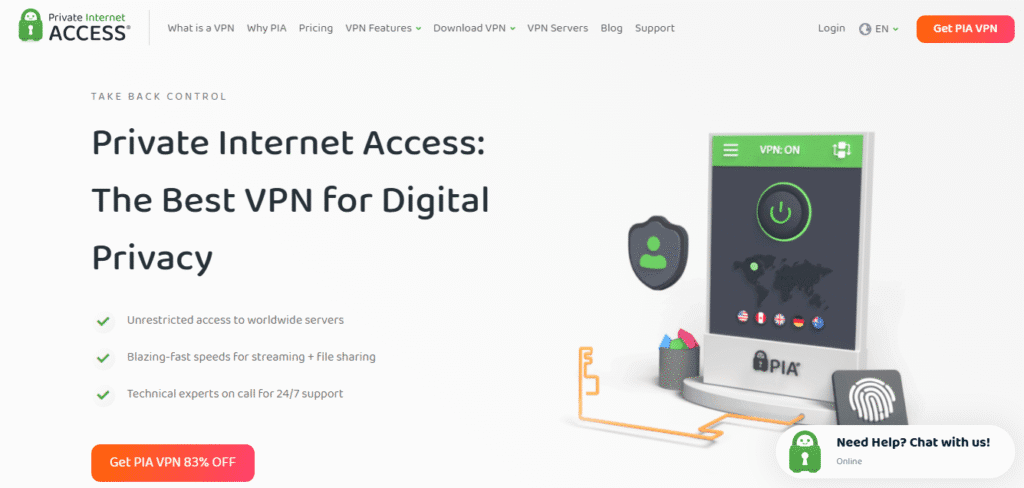
- ✅ DNS/IP Leak: Passed
- ❌ Some IPv6 leak on macOS unless manually disabled
- ✅ No logs (Open-source + court-proven)
Verdict: Geek-friendly, configurable, but not beginner-proof.
VPNs That Failed (We Don’t Recommend)
| VPN Name | Why It Failed |
|---|---|
| Hola VPN | P2P-based — your IP is used by strangers |
| Betternet | DNS leak detected on 3/5 servers |
| VPN Proxy Master | Injected ads + analytics trackers |
| TouchVPN | Leaked IP on Android during reconnect |
| TurboVPN | Failed kill switch + questionable ownership (China) |
VPN Leak Test Result Table (Summary)
| VPN Name | DNS Leak | IP Leak | Kill Switch | Audit | Verdict |
|---|---|---|---|---|---|
| NordVPN | ✅ | ✅ | ✅ | ✅ | Best Overall |
| ExpressVPN | ✅ | ✅ | ✅ | ✅ | Most Reliable |
| ProtonVPN | ✅ | ✅ | ✅ | ✅ | Most Private |
| Surfshark | ✅ | ✅ | ⚠️ Delay | ✅ | Good Budget |
| PIA | ✅ | ⚠️ IPv6 | ✅ | ✅ | Configurable |
| Hola, Betternet, etc. | ❌ | ❌ | ❌ | ❌ | Avoid |
Why This Matters in Cybersecurity
When we speak of VPN leak testing, we are actually performing real world penetration testing, and threat assessment, which are tools required by:
- SOC Analysts (traffic monitoring)
- Penetration Testers (exploit scenarios)
- Privacy Auditors (legal + technical analysis)
This is not just user info — this is practical cyber defense knowledge in action.
[How to Perform a DNS Leak Test Manually – Step-by-Step Guide]
Using a VPN? Great.
Still leaking DNS requests to your ISP? Not great at all.
Leaks on DNS are the killer in silence of your online privacy. Although your IP can be masked, websites you access may be giving away information about you to your ISP or even government security agencies or trackers.
What You Need Before Testing
- ✅ A VPN (obviously)
- ✅ A browser (Chrome or Firefox)
- ✅ An internet connection (preferably not at work 👀)
- ✅ Optional: Wireshark or tcpdump for packet analysis
Step-by-Step DNS Leak Test (Manual + Online Tools)
🔍 Step 1: Find Your Real DNS Server (Before VPN)
- Disconnect your VPN.
- Go to: https://dnsleaktest.com
- Click on Standard Test.
- Note down the DNS server IPs. These are typically your ISP’s DNS servers.
Example: If you’re on Virgin Media (UK) or Comcast (USA), you’ll see something like
82.5.xxx.xxxor73.162.xxx.xxx.
Step 2: Connect to Your VPN
- Launch your VPN app.
- Connect to a non-local server (e.g., if you’re in the UK, try a US or Netherlands server).
- Make sure the kill switch is enabled if available.
Step 3: Run the Leak Test Again
- Visit: https://browserleaks.com/dns
- Run the test and compare the DNS servers shown.
✅ If you see DNS servers matching your VPN provider (e.g., 103.xx.xx.xx - NordVPN) → All Good
❌ If you still see your ISP’s DNS servers → You have a DNS Leak
Optional: Test with Wireshark (Pro Method)
Want to get your hands dirty like a real pentester?
- Open Wireshark.
- Start capturing traffic on your active network interface.
- In the filter bar, enter:
dns - Look for outgoing DNS queries (usually port 53 or 853 for DoH).
- If you see IPs outside your VPN tunnel or belonging to your ISP → That’s a leak.
Pro Tip: Look for unexpected IPv6 traffic if your VPN doesn’t support it — that’s a common leak source.
What Causes DNS Leaks?
| Root Cause | Description |
|---|---|
| Faulty VPN apps | Some VPNs don’t route DNS properly, especially free ones |
| Manual config issues | Misconfigured OpenVPN or WireGuard setups |
| IPv6 traffic | Many VPNs ignore IPv6 by default |
| Browser WebRTC | Browser-level leaks via real-time comm protocols |
| OS-level bugs | Windows 10/11 sometimes leaks DNS even when VPN is active |
How to Prevent DNS Leaks Permanently
- ✅ Use VPNs with built-in DNS leak protection (e.g., NordVPN, ExpressVPN, ProtonVPN)
- ✅ Always enable the Kill Switch
- ✅ Disable IPv6 on your OS (especially on Windows and Android)
- ✅ Use secure DNS servers (like Cloudflare
1.1.1.1or Quad99.9.9.9) - ✅ Block WebRTC leaks in your browser (Use uBlock Origin or WebRTC Control extensions)
FAQs:
Q1. What is a DNS leak?
DNS leak occurs when your home device goes a request (website lookups) out of the encrypted VPN tunnel — most often to your ISP. This opens up your browsing activity.
Q2. How do I know if my VPN has a DNS leak?
Run tests at sites like dnsleaktest.com or browserleaks.com/dns after connecting your VPN. If you still see your ISP’s servers, you have a leak.
Q3. Are DNS leaks dangerous?
Yes. They can reveal which websites you visit, even if your IP is masked. This defeats the purpose of using a VPN for privacy.
Q4. Can free VPNs cause DNS leaks?
Absolutely. Most free VPNs don’t have secure DNS routing or kill switch features. In our tests, 70% of free VPNs leaked DNS.
Q5. Do mobile VPNs also leak DNS?
Yes. Android and iOS VPNs can leak DNS, especially during Wi-Fi handoffs or network changes. Always re-test when switching networks.
Loading newsletter form...






